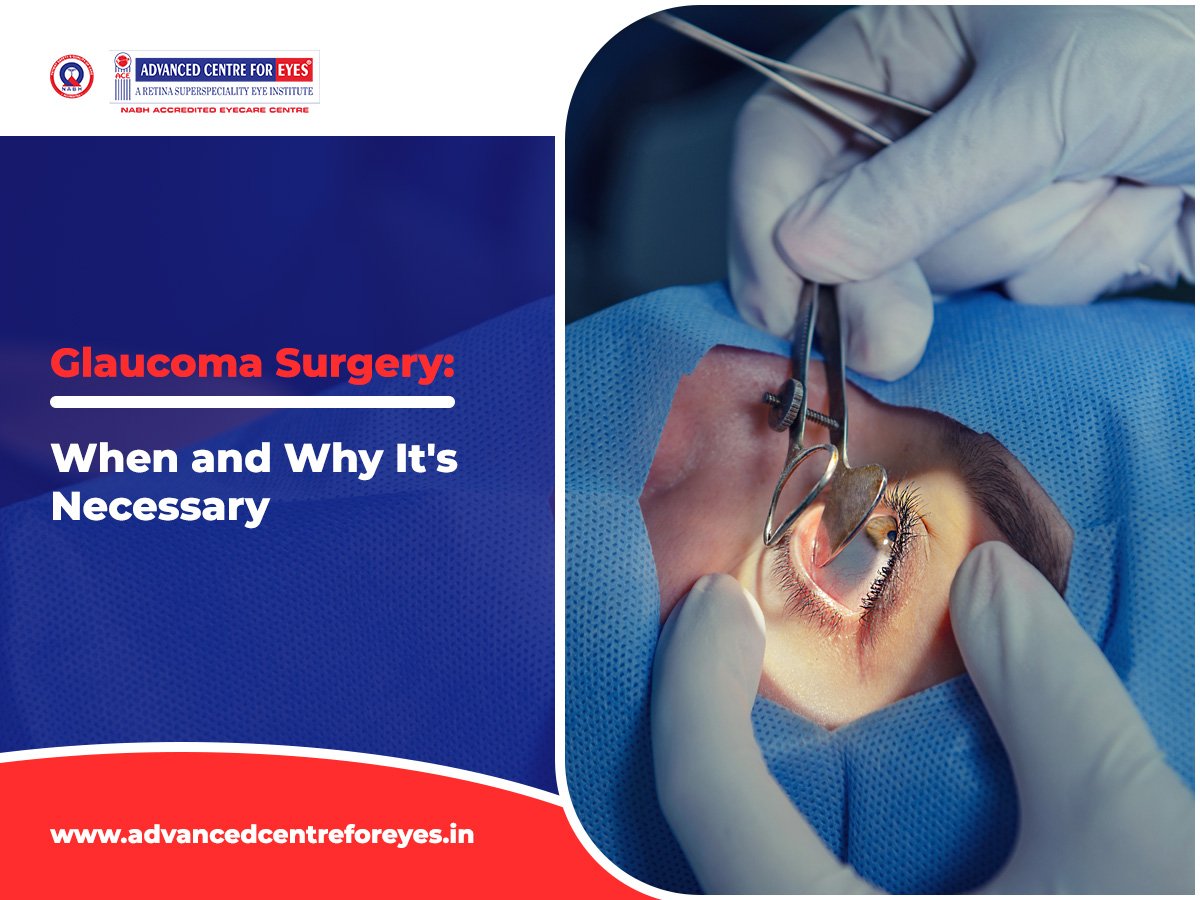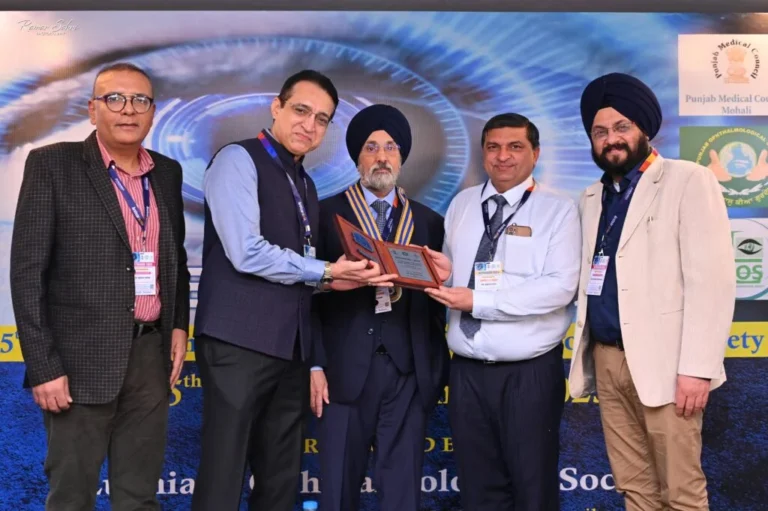Glaucoma Surgery: When and Why It’s Necessary
Glaucoma is an eye disease that can cause blindness if not treated. It damages the optic nerve, which is crucial for seeing. Imagine the optic nerve as a cable that connects your eyes to your brain. When this cable gets damaged, it becomes harder for the brain to understand what the eyes are seeing. Let us learn how a glaucoma specialist in Ludhiana can guide us when and why it is necessary to do a glaucoma surgery.
What Causes Glaucoma?
Glaucoma usually happens because of high pressure inside the eye. Our eyes produce a fluid called aqueous humor, which flows in and out of the eye. When this fluid doesn’t drain properly, it builds up and increases pressure. This pressure can damage the optic nerve.
Types of Glaucoma
There are two main types of glaucoma:
- Open-Angle Glaucoma: This is the most common type. It happens slowly over time and doesn’t cause pain. You might not notice any vision changes until the damage is severe.
- Angle-Closure Glaucoma: This type is less common but more serious. It happens suddenly and causes severe pain, nausea, and blurred vision. It needs immediate medical attention.
Symptoms of Glaucoma
Glaucoma is often called the “silent thief of sight” because it can steal your vision without any warning. Some symptoms to watch out for include:
- Loss of peripheral vision (seeing things from the side)
- Seeing halos around lights
- Redness in the eye
- Eye pain
- Blurred vision
When is Glaucoma Surgery Necessary?
Glaucoma surgery is necessary when other treatments, like eye drops or medication, don’t work. The goal of the surgery is to lower the pressure in the eye to prevent further damage to the optic nerve.
Types of Glaucoma Surgery
There are several types of glaucoma surgery, and the choice depends on the patient’s condition. Here are some common types:
- Laser Surgery: This is a non-invasive procedure where a laser is used to improve the drainage of the fluid in the eye. It’s often used for open-angle glaucoma.
- Trabeculectomy: This is a surgical procedure where the doctor creates a small hole in the eye to help drain the fluid.
- Drainage Implants: Tiny tubes are inserted into the eye to help drain the fluid.
- Minimally Invasive Glaucoma Surgery (MIGS): These are newer procedures that involve smaller incisions and less recovery time.
Preparing for Glaucoma Surgery
If your glaucoma specialist in Ludhiana recommends surgery, they will guide you through the preparation process. Here are some general steps:
- Medical History: The doctor will review your medical history and any medications you are taking.
- Eye Examination: A thorough eye examination will be done to understand the extent of the damage.
- Pre-Surgery Instructions: You may be asked to stop certain medications or follow specific instructions before the surgery.
What Happens During Glaucoma Surgery?
The details of the surgery will depend on the type of procedure being done. Generally, here’s what to expect:
- Anesthesia: Local or general anesthesia will be used to numb the area and keep you comfortable.
- Procedure: The surgeon will use specialized tools to create a new drainage pathway or insert an implant.
- Duration: The surgery usually takes about 1-2 hours.
- Recovery: You will be monitored for a short time before being allowed to go home.
After Glaucoma Surgery
Recovery after glaucoma surgery is crucial for the success of the procedure. Here are some tips:
- Follow-Up Visits: Regular follow-up visits with your glaucoma specialist in Ludhiana are essential to monitor your progress.
- Medications: You may need to use eye drops or take medications to prevent infection and control inflammation.
- Protect Your Eyes: Avoid rubbing your eyes and wear protective eyewear if necessary.
- Rest: Give your eyes time to heal by avoiding strenuous activities.
Potential Risks and Complications
Like any surgery, glaucoma surgery has potential risks and complications. Some of these include:
- Infection
- Bleeding
- Scarring
- Vision changes
However, your glaucoma specialist in Ludhiana will discuss these risks with you and take steps to minimize them.
Importance of Early Detection
Early detection of glaucoma is vital to prevent severe vision loss. Regular eye check-ups can help detect glaucoma early. If you experience any symptoms or have a family history of glaucoma, it’s essential to see an eye doctor immediately.
How to Prevent Glaucoma
While glaucoma cannot always be prevented, there are steps you can take to reduce your risk:
- Regular Eye Exams: Regular eye exams can help detect glaucoma early.
- Know Your Family History: If you have a family history of glaucoma, you may be at higher risk.
- Exercise Regularly: Regular exercise can help reduce eye pressure.
- Protect Your Eyes: Wearing protective eyewear can prevent injuries that might lead to glaucoma.
Conclusion
Glaucoma is a serious eye condition that can lead to blindness if not treated. Understanding the importance of glaucoma surgery and when it is necessary can help protect your vision. If you or someone you know is experiencing symptoms of glaucoma, it’s crucial to see a glaucoma specialist in Ludhiana for proper diagnosis and treatment. Regular eye exams and early detection are key to managing this condition effectively. Remember, taking care of your eyes is essential for maintaining good vision and overall health.






